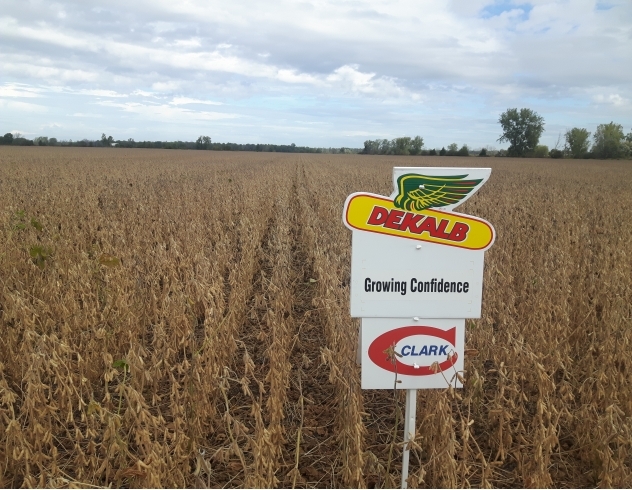News & Events

Exciting improvements in herbicide options to control problem weeds
January 29, 2018

As we review the previous growing season and the innovations it brought with it, we can see new and exciting improvements in herbicide options to control problem weeds. One such treatment, specifically, is Dicamba, in the form of Engenia and Xtendimax, reformulated to better combat weeds resistant to glyphosate.
There are a lot of different views on the safety, risks and hazards of the product and where it might be best used and applied. Recently, at the Niagara/Haldimand Soil and Crop Meeting, Mike Cowborough from OMAFRA went over a couple scenarios of how Ontario growers are better positioned to manage Dicamba when compared to our southern neighbours, particularly Arkansas, where the most damage from volatilization can be found. One key factor that lowers Ontario’s risk of volatilization is favourable weather conditions with fewer days that are over 30 degrees Celsius. When the Dicamba products were put on the market in Ontario, application labels were wisely made quite restrictive in comparison to American labels for similar products. This ensures maximized benefits, while minimizing any related risks to the product.
Although we have less risk, it doesn’t mitigate the risk altogether. As an agriculture industry we need to continue to approach it with safe management practices. Experts recommend pre-planting or very early post-emergent application to limit volatilization risks. During the first few weeks in the growing season there are typically fewer sensitive crops in critical growth periods. If there are sensitive crops close by, however, other effective modes might be a better suited management approach. As far as resistance is concerned, it is also important to apply multiple modes of action to combat resistant weeds. If we only apply individual modes of action, we reduce the effectiveness of herbicides that can control weeds that are serious problems for areas in the southern states, such as Waterhemp and Palmer Amaranth.
In short, Dicamba is a promising and effective weed control treatment when regulated properly in ideal climate conditions away from sensitive crops. As with any other treatment, management approaches that are chosen based on informed decisions can be the deciding factor on whether a product is beneficial or hazardous.
If you have any further questions about Dicamba or related modes of action, contact your Clark agronomist to find the right product for potential problem weeds on your farms. Together, we can decide which mode of action is the most effective solution for your individual farming operation.

This Crop Corner has been written by Jake Elgersma, Sales Agronomist at Clark Agri Service. Jake can be reached by email jelgersma@clarkagriservice.com or by phone 289-659-5747